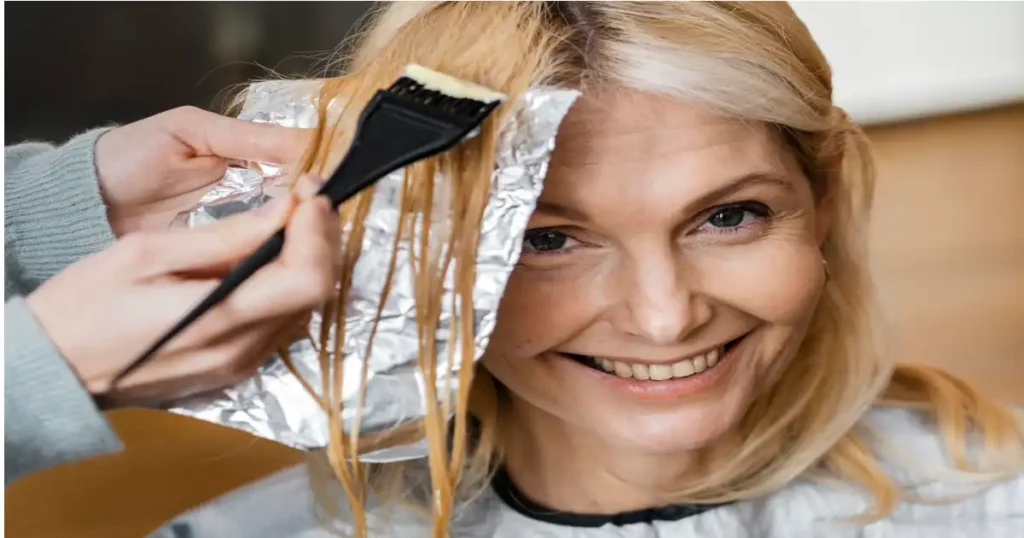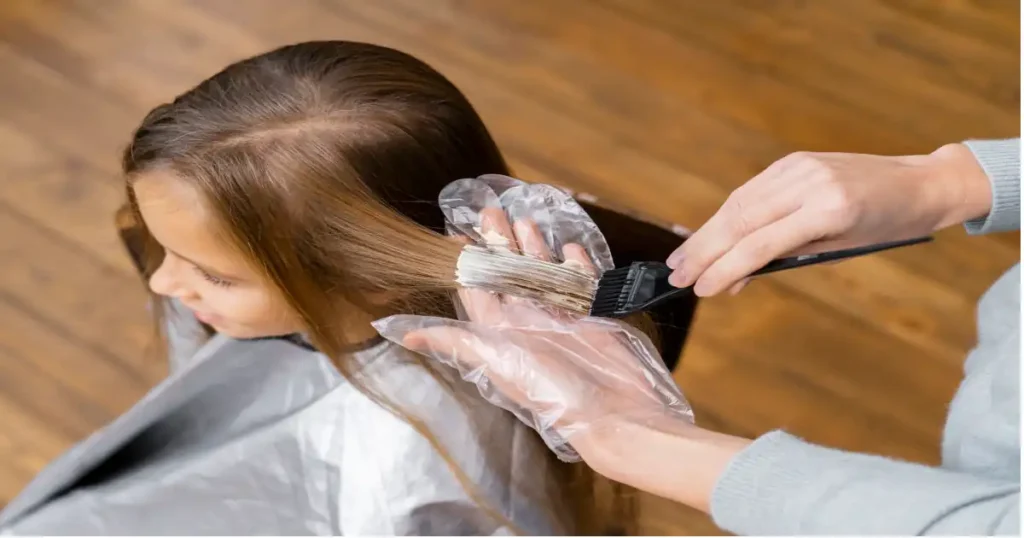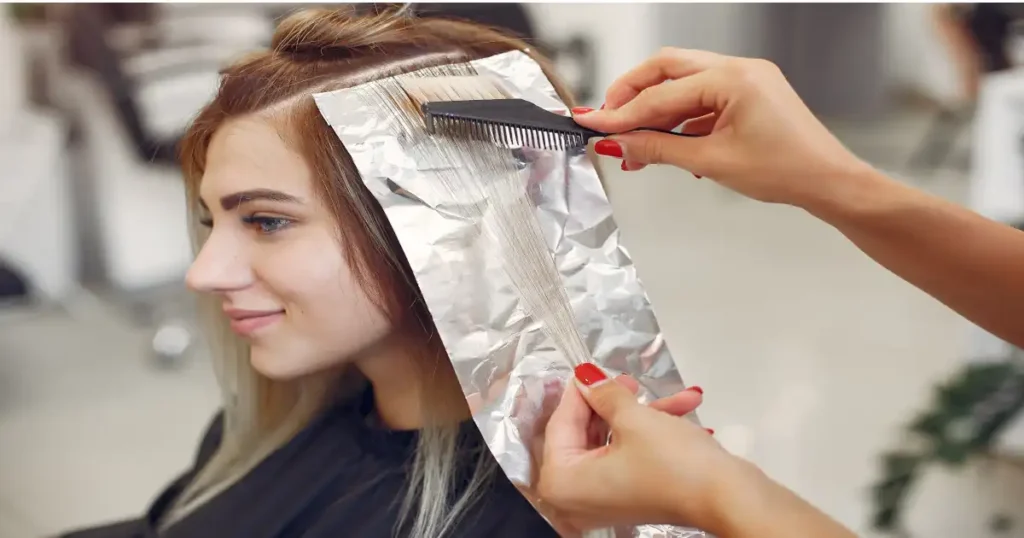Introduction: Embracing the Beauty of Natural Hair Coloring
When it comes to hair care, the choices we make significantly impact not only our appearance but also our overall health. With the rise of natural beauty trends, many individuals are seeking natural black hair dye options that are free from harsh chemicals and synthetic ingredients. This guide aims to provide comprehensive insights into the benefits, methods, and applications of natural black hair dye, allowing you to make informed choices for your hair care routine.
1. Understanding Natural Black Hair Dye
Natural black hair dye refers to coloring products derived from plant-based ingredients rather than synthetic chemicals. Traditional hair dyes often contain ammonia, peroxide, and other harmful substances that can damage the hair shaft and lead to long-term health issues. In contrast, natural dyes are made from ingredients like henna, indigo, and various herbal extracts that are not only effective in providing color but also nourish and strengthen the hair.
Benefits of Using Natural Black Hair Dye
Choosing natural black hair dye offers a multitude of advantages compared to conventional hair coloring methods. By opting for these plant-based alternatives, you can experience a range of benefits that cater not only to your aesthetic needs but also to your overall health and wellness. Below are some key benefits of using natural black hair dye:
1. Safety for Your Hair and Scalp
One of the most compelling reasons to choose natural black hair dye is the safety it offers. Traditional hair dyes often contain harsh chemicals, such as ammonia and hydrogen peroxide, which can lead to various adverse effects, including:
- Allergic Reactions: Many individuals experience allergic reactions to synthetic dyes, resulting in itchy, inflamed scalps or rashes. Natural dyes are less likely to cause such reactions, making them a safer choice for sensitive skin.
- Chemical Burn: Some chemical hair dyes can cause burns or irritation when they come into contact with the skin. Natural alternatives significantly reduce this risk.
- Less Risk of Damage: Unlike their synthetic counterparts, natural dyes do not strip the hair of its natural oils. This helps maintain hair’s health and luster while coloring.
2. Nourishing Properties
Natural black hair dyes are often rich in nourishing ingredients that can improve the overall health of your hair. Many natural dyes contain:
- Vitamins and Antioxidants: Ingredients like amla and henna are packed with vitamins that promote hair health and growth. They help nourish the hair follicles, leading to stronger and thicker hair.
- Moisturizing Agents: Natural dyes often include ingredients that hydrate the hair, preventing dryness and brittleness. Those with frizzy or curly hair would especially benefit from this.
- Scalp Health: Some natural ingredients possess antimicrobial properties, which can help maintain a healthy scalp. A healthy scalp is crucial for promoting hair growth and preventing conditions like dandruff.
3. Long-Lasting Color
Many people believe that natural dyes do not provide long-lasting results compared to chemical dyes, but this is a misconception. Natural black hair dye can offer a vibrant and enduring color, especially when combined with complementary natural ingredients. The reasons for this include:
- Deep Penetration: Natural dyes penetrate the hair shaft more effectively, allowing for a more profound color that lasts longer than synthetic options.
- Layering Effects: By using natural dyes like henna and indigo in layers, you can achieve richer, deeper shades that are less prone to fading.
- Color Fade Resistance: Natural dyes tend to fade more gracefully than chemical dyes. This means that as the color fades, it doesn’t leave stark roots, leading to a more natural appearance.
4. Eco-Friendly Choice
Choosing natural black hair dye is also an environmentally conscious decision. Many commercial hair dyes contribute to environmental pollution through the use of synthetic chemicals, which can harm ecosystems. By opting for natural dyes, you:
- Reduce Chemical Waste: Natural dyes are biodegradable and less likely to pollute water sources, making them a more eco-friendly choice.
- Support Sustainable Practices: Many natural dye manufacturers are committed to sustainable sourcing and ethical production methods, which helps support local communities and ecosystems.
- Embrace Eco-Conscious Beauty: Using natural black hair dye aligns with a growing trend towards eco-conscious beauty products, allowing you to feel good about your choices.
5. Customization and Versatility
Another significant advantage of using natural black hair dye is the ability to customize your color and treatment based on personal preferences. This versatility allows you to:
- Mix and Match Ingredients: By experimenting with different natural ingredients, you can create a customized dye that meets your specific color needs and hair type. For instance, you can mix henna with indigo to achieve your desired shade of black.
- Adjust to Seasonal Changes: Hair needs may change with the seasons; natural dyes can be adjusted accordingly. In summer, you might want lighter tones, while in winter, deeper shades might be preferred.
- Create Unique Shades: With the ability to combine various natural ingredients, you can achieve unique, personalized shades that stand out and reflect your individuality

-
Common Natural Ingredients for Black Hair Dye
When it comes to achieving a rich, deep black color for your hair, several natural ingredients stand out for their efficacy and nourishing properties. Utilizing these ingredients can not only help you achieve the desired color but also enhance the overall health of your hair. Below are some of the most common natural ingredients used in black hair dye:
1. Henna (Lawsonia inermis)
Henna is one of the most popular natural dyes, known for its ability to impart a warm reddish-brown hue. When combined with other ingredients, it can create stunning black shades.
- How It Works: The active compound in henna, lawsone, binds to the keratin in hair, resulting in vibrant color. While henna alone gives a reddish tint, mixing it with other natural dyes can deepen the color.
- Benefits: In addition to coloring, henna provides nourishing properties. It strengthens hair strands, promotes hair growth, and helps reduce dandruff. Moreover, henna has antimicrobial properties, which can enhance scalp health.
2. Indigo (Indigofera tinctoria)
Indigo is another key ingredient used for creating black shades in hair. It’s often combined with henna to achieve a deep black color.
- How It Works: Indigo works by depositing a blue pigment onto the hair. When layered over henna, the result is a rich, deep black. This combination can create a multi-dimensional color that looks natural.
- Benefits: Indigo is known for its conditioning properties. It helps to soften hair and can improve its overall texture. Additionally, it can provide a cooling effect on the scalp, which is particularly beneficial for those with oily scalp conditions.
3. Amla (Phyllanthus emblica)
Amla, or Indian gooseberry, is highly regarded in Ayurvedic practices and is used for both its color and health benefits.
- How It Works: Amla can enhance the effectiveness of henna and indigo when used together. It doesn’t directly dye the hair black, but it helps to enrich the overall color and can provide a beautiful sheen.
- Benefits: Amla is rich in vitamin C and antioxidants, promoting hair health by preventing premature graying and enhancing growth. Its natural acidity can also help balance the scalp’s pH, keeping it healthy and free from irritation.
4. Coffee and Tea
Coffee and tea are surprising yet effective ingredients for achieving darker shades in natural hair dye.
- How They Work: Brewed coffee or strong black tea can be used as a rinse or added to hair dye mixtures. The pigments in coffee and tea can help deepen the color of hair, especially when used repeatedly.
- Benefits: Both coffee and tea contain antioxidants that can improve scalp health and strengthen hair. Additionally, coffee may enhance shine and add volume, while tea can offer soothing benefits to the scalp.
5. Black Walnut Hulls (Juglans nigra)
Black walnut hulls are less common but can provide excellent dark color to hair.
- How They Work: The outer hulls of black walnuts contain a rich pigment that can stain hair. When used as a dye, it can create deep, rich black or dark brown hues.
- Benefits: Black walnut hulls are known for their astringent properties, which can help clarify the scalp. They may also help reduce oiliness and are often used in natural remedies for various scalp issues.
6. Sage (Salvia officinalis)
Sage is a well-known herb that can help enhance dark hair colors.
- How It Works: Sage can be brewed into a strong tea and used as a rinse or combined with other natural dyes. It works particularly well for those with dark brown or black hair looking to enhance their color.
- Benefits: Sage has antioxidant properties and can promote scalp health. Its soothing nature can help alleviate dandruff and maintain a balanced scalp.
7. Bramhi (Bacopa monnieri)
Brahmi is an Ayurvedic herb that can be used in hair care, particularly for its calming properties.
- How It Works: While Brahmi doesn’t directly dye hair, it can enhance the conditioning effects of other natural dyes and improve overall hair texture.
- Benefits: Brahmi nourishes the scalp and strengthens hair roots. It is known to prevent hair loss and can help in maintaining vibrant hair colors.
3. How to Apply Natural Black Hair Dye
Preparation
Before applying any natural black hair dye, it’s essential to prepare your hair and the dye mixture. Start by conducting a patch test to ensure you don’t have an allergic reaction to any of the ingredients.
- Gather Your Ingredients: You will need henna, indigo, amla, and water. Measure the required quantities based on your hair length.
- Mixing the Dye: Combine henna with warm water to form a paste. Let it sit for a few hours to release the dye. Afterward, add indigo powder and mix until you achieve a smooth consistency.
- Preparing Your Hair: Wash your hair with a mild shampoo to remove any product buildup. Your hair should be wet after towel drying.

Application Process
- Section Your Hair: Divide your hair into manageable sections to ensure even coverage.
- Apply the Mixture: Start applying the dye from the roots to the tips using gloves to prevent staining your hands. Ensure every strand is covered, focusing on areas with more gray hair.
- Setting Time: Cover your hair with a shower cap and let the dye set for 1-4 hours, depending on the desired intensity.
- Rinse Thoroughly: After the setting time, rinse your hair with cool water until the water runs clear. To give the color time to set, refrain from shampooing for at least 24 hours.
4. Maintaining Color and Health with Natural Dyes
Post-Dye Care
Maintaining your natural black hair dye is crucial for longevity and health. Here are some tips to ensure your hair remains vibrant:
- Avoid Sulfates: Use sulfate-free shampoos to prevent color fading. Sulfates can strip away natural oils and dyes from your hair.
- Moisturizing Treatments: Regularly apply natural oils, like coconut or argan oil, to keep your hair moisturized and healthy.
- Limit Heat Styling: Reduce the use of heat styling tools to avoid damaging your colored hair. Embrace heat-free styling methods for healthier hair.
Regular Touch-Ups
Maintaining the vibrancy of your natural black hair dye requires regular touch-ups, especially as your hair grows and the roots begin to show. Regular touch-ups not only help to keep your color looking fresh but also ensure that your hair remains healthy and vibrant.
Why Regular Touch-Ups are Necessary
Over time, the color intensity of any hair dye, including natural black hair dye, can fade due to various factors such as sun exposure, washing, and environmental pollutants. Hair growth also plays a significant role; as your roots grow in, the contrast between the dyed lengths and your natural hair color can become pronounced. This is particularly evident with black hair dyes, where a stark contrast can make your hair look less polished.
- Prevent Fading: Natural dyes like henna and indigo may fade quicker than chemical dyes, so consistent touch-ups are essential. Regularly reapplying your natural black hair dye helps to restore its richness and vibrancy, ensuring your hair remains radiant and youthful.
- Covering Grays: For those who are transitioning to natural hair colors or who have gray hairs, regular touch-ups are crucial. The natural black hair dye effectively covers gray strands, allowing for a seamless blend between your colored hair and your natural color.
How Often to Touch Up
The frequency of touch-ups largely depends on your hair growth rate and the type of natural black hair dye you use. Generally, every four to six weeks is a common recommendation for most individuals, but this can vary:
- Fine or Thinner Hair: If you have fine or thinner hair, you might notice regrowth more quickly. In this case, you may prefer touch-ups every three to four weeks to maintain your look.
- Thicker Hair: If your hair is thicker or coarser, you might find that you can extend your touch-up schedule to every six to eight weeks without the roots becoming too noticeable.
Touch-Up Techniques
When it comes to applying touch-ups, consider the following techniques to make the process more effective:
- Apply to Roots First: Start by applying the natural black hair dye primarily to your roots. This ensures that the new growth is covered adequately. Once the roots are done, you can apply the dye to the lengths of your hair if needed.
- Use a Brush: For precise application, use a dye brush. This allows you to apply the dye evenly and helps you reach the roots effectively. Precision is especially important for maintaining the integrity of your color.
- Time It Right: Follow the recommended processing time for your specific dye. This is crucial, as overprocessing can lead to dryness or damage, even with natural ingredients.
- Deep Conditioning Post-Touch-Up: After the touch-up process, it’s beneficial to deep condition your hair. Natural black hair dye can sometimes strip moisture, so using a good conditioner or hair mask can help restore hydration and shine.
The Benefits of Regular Touch-Ups
Regular touch-ups with natural black hair dye offer a variety of benefits that go beyond just maintaining color:
- Enhanced Hair Health: Regularly using natural dyes often involves healthier ingredients, which can help strengthen your hair over time. Dyes like henna not only color but also condition your hair, leading to overall improved hair health.
- Boosted Confidence: Maintaining a fresh and vibrant hair color can significantly boost your confidence. Knowing that your hair looks good can positively affect your self-esteem and how you carry yourself.
- Customization: Regular touch-ups allow you to adjust the shade of your natural black hair dye as desired. You can mix different natural ingredients or adjust application techniques to achieve your perfect shade, ensuring your hair reflects your personality.
Conclusion: The Path to Vibrant and Healthy Hair
Switching to natural black hair dye can be a transformative experience for your hair and overall well-being. The safety, nourishment, and eco-friendliness of natural dyes make them a superior choice for those looking to enhance their beauty routine without compromising health.
By understanding the benefits, ingredients, and application processes of natural black hair dye, you are empowered to make informed choices. Embrace the journey of hair coloring with natural products, and enjoy the rich, beautiful color that enhances your unique beauty.
FAQs
1. What are the ingredients in natural black hair dye?
Natural black hair dyes often include ingredients like henna, indigo, and herbal extracts. These components are derived from plants and do not contain harsh chemicals.
2. How long does natural black hair dye last?
The longevity of natural black hair dye varies, but it generally lasts between four to six weeks, depending on hair growth and care.
3. Can I use natural black hair dye on chemically treated hair?
While it is possible to use natural dyes on chemically treated hair, it’s recommended to wait for a few weeks after the last chemical treatment for optimal results.
4. How can I achieve a darker shade with natural black hair dye?
To achieve a darker shade, consider leaving the dye on longer or using a higher concentration of indigo in your mix.
5. Is natural black hair dye safe for sensitive skin?
Most natural black hair dyes are safe for sensitive skin, but it’s advisable to perform a patch test before full application to avoid allergic reactions.
6. Can I mix different natural dyes?
Yes, mixing different natural dyes can yield unique shades. Experimenting with various combinations allows for personalized results.







